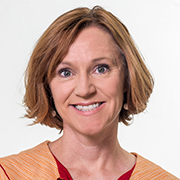
June 27 Moos Webinar - Shannon Spurlock
Opportunities for Water Reuse and Recharge in Minnesota
 In our latest Moos webinar, Shannon Spurlock spoke about on water reuse and recharge. Spurlock is a senior researcher in Public Policy and Water Uptake at the Pacific Institute. Prior to the Pacific Institute, she ran a consulting business and worked on projects including researching interagency collaboration among water utilities to enhance water reuse. She received a Master of Nonprofit Management from Regis University and holds a B.A. from the University of Colorado.
In our latest Moos webinar, Shannon Spurlock spoke about on water reuse and recharge. Spurlock is a senior researcher in Public Policy and Water Uptake at the Pacific Institute. Prior to the Pacific Institute, she ran a consulting business and worked on projects including researching interagency collaboration among water utilities to enhance water reuse. She received a Master of Nonprofit Management from Regis University and holds a B.A. from the University of Colorado.
Topics included:
- Local and global opportunities for water reuse and recharge across sectors such as agriculture and manufacturing.
- The importance of technical evaluations and policy initiatives on water reuse and managed aquifer recharge projects.
- Early-stage recommendations for Minnesota to develop its water reuse community, including establishing policies and guidelines.
View a recording of the webinar below and access Shannon's slides here.
If you would like to learn more about becoming a sponsor for the Moos Family Speaker Series, please contact Natalie Stange at nstange@freshwater.org.
Since 2010, Freshwater and the University of Minnesota College of Biological Sciences have co-hosted a free stimulating lecture series on water and the environment. The lectures, known as the Moos Family Speaker Series on Water Resources, honor the late Malcolm Moos, president of the university from 1967 to 1974. The series brings together influential experts on a broad array of topics and pairs a nationally known speaker with a panel of regional experts. They present the latest research on timely and important issues through an accessible—and often entertaining—presentation.
